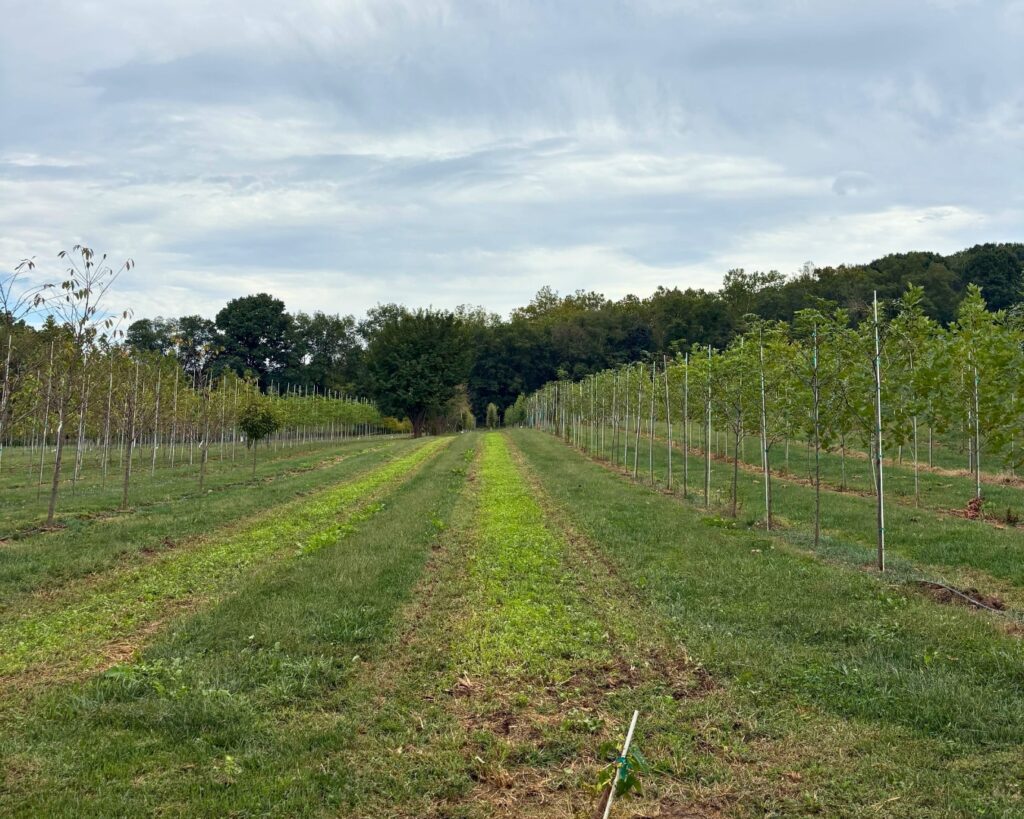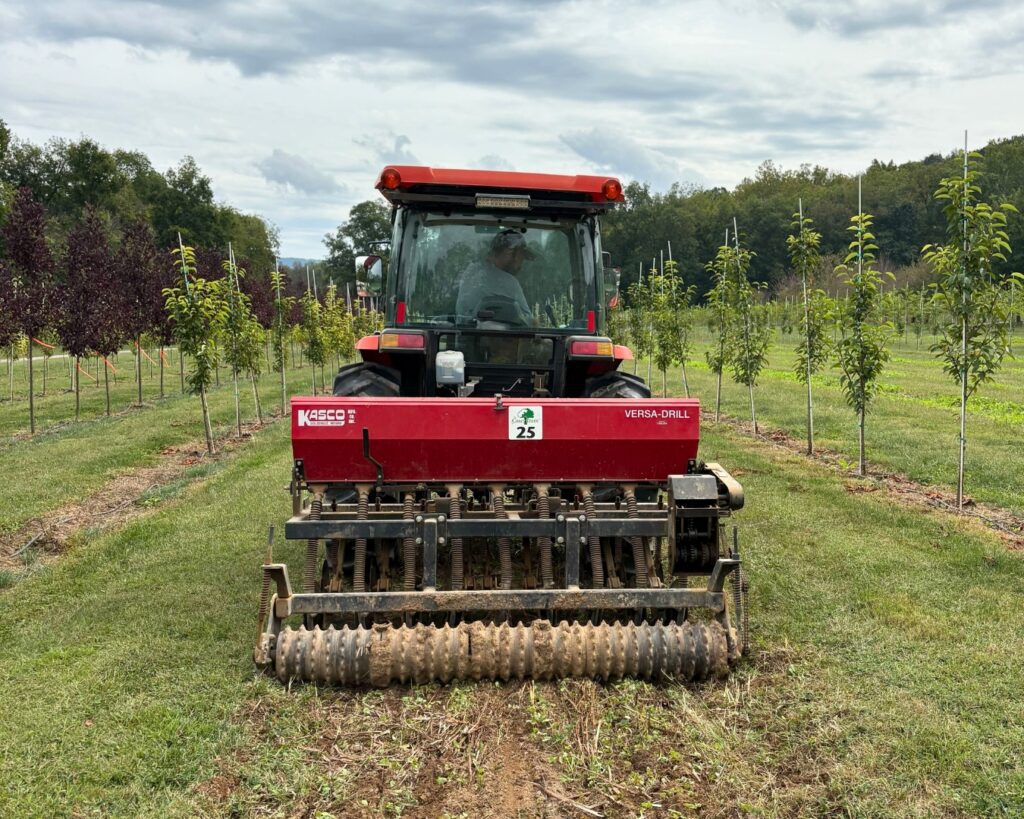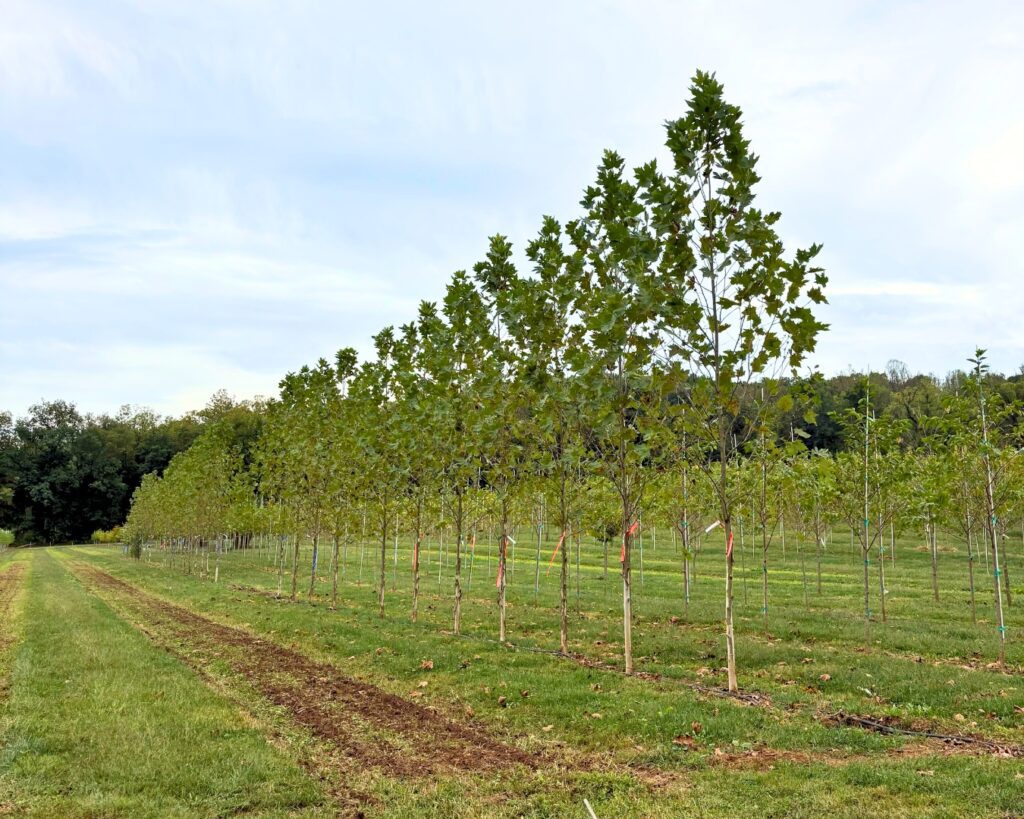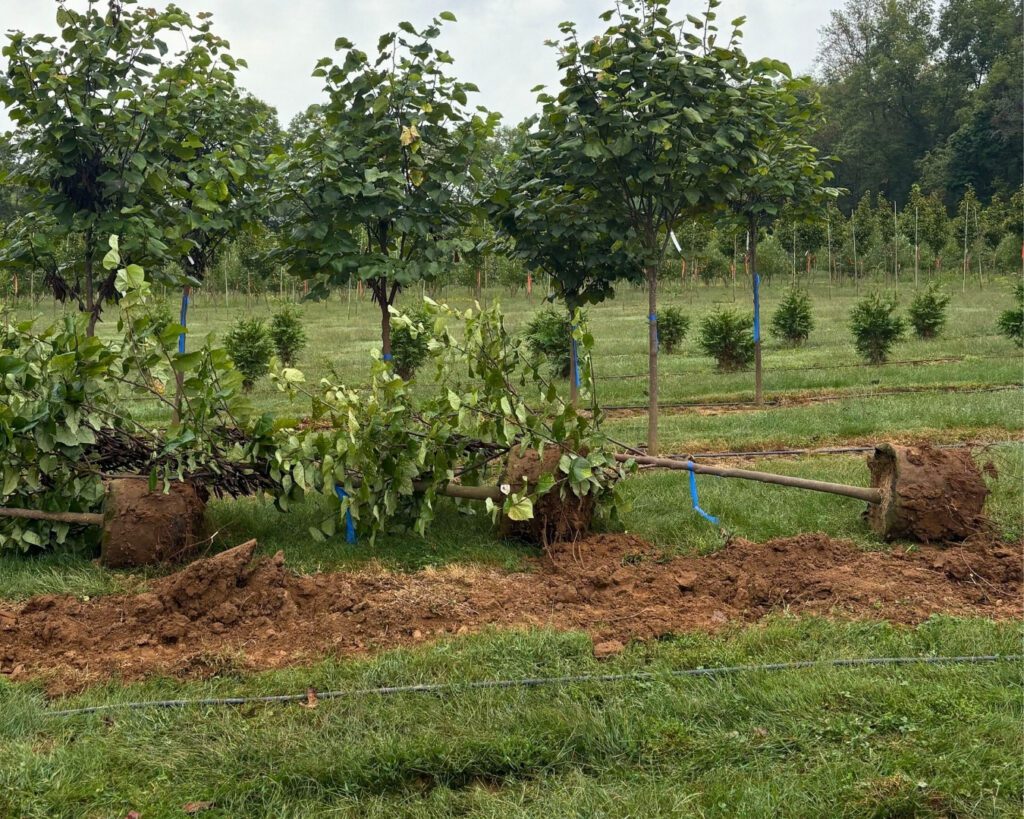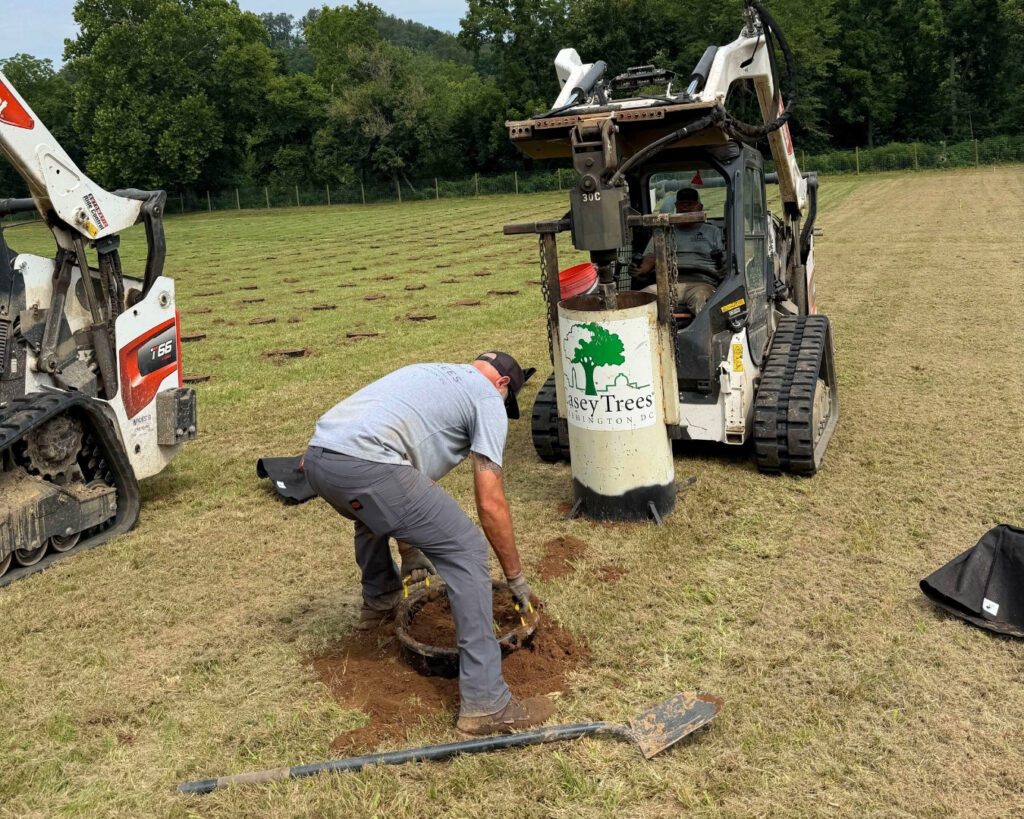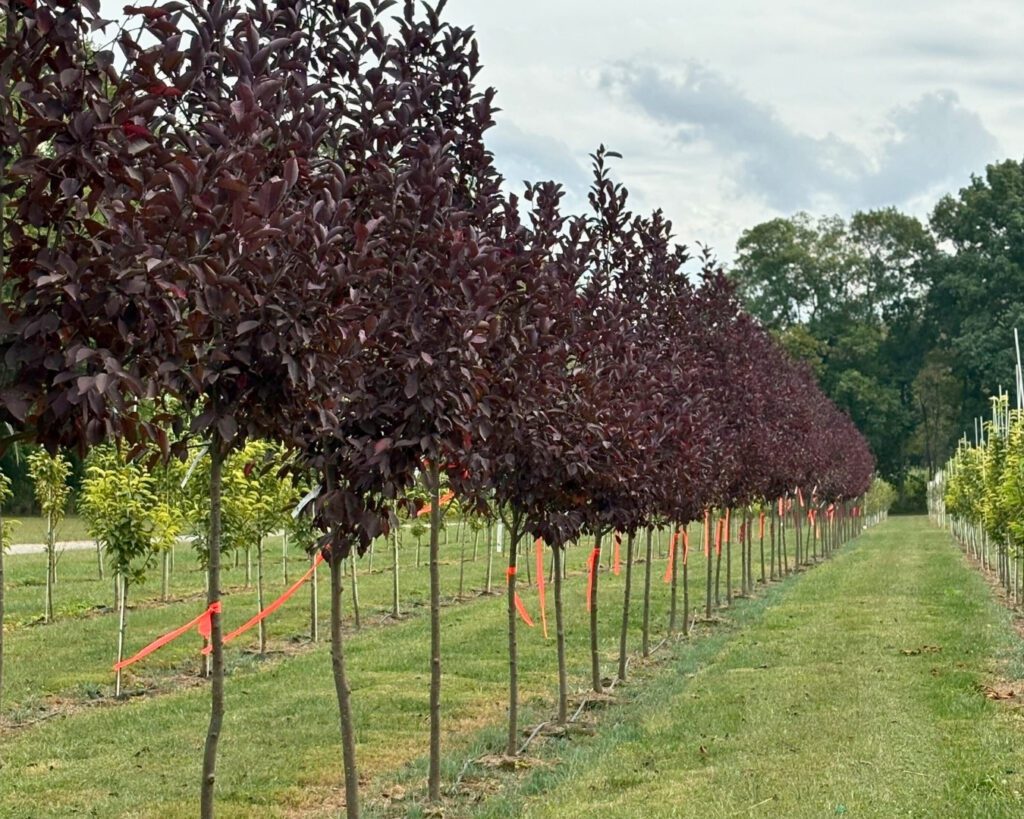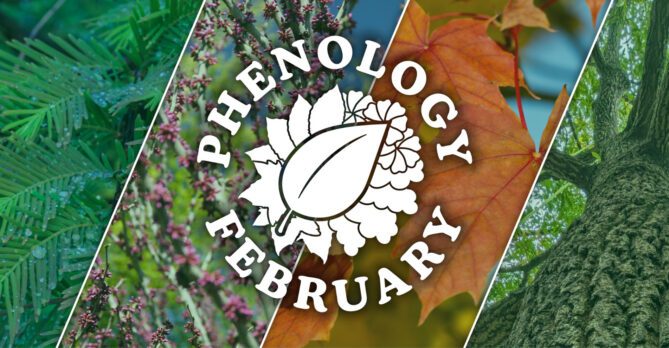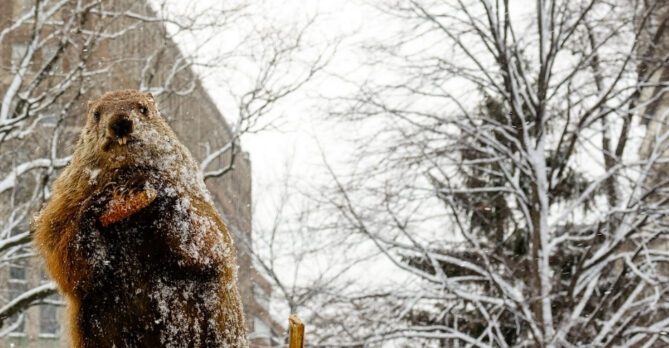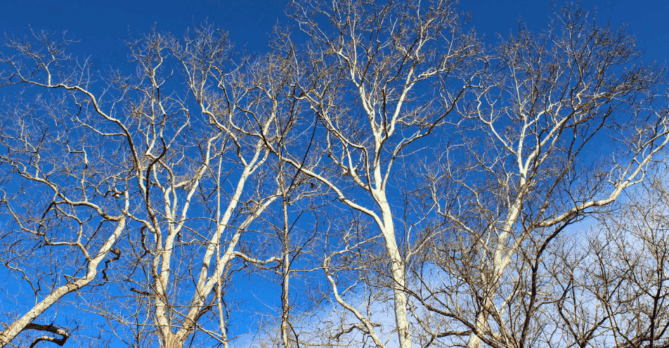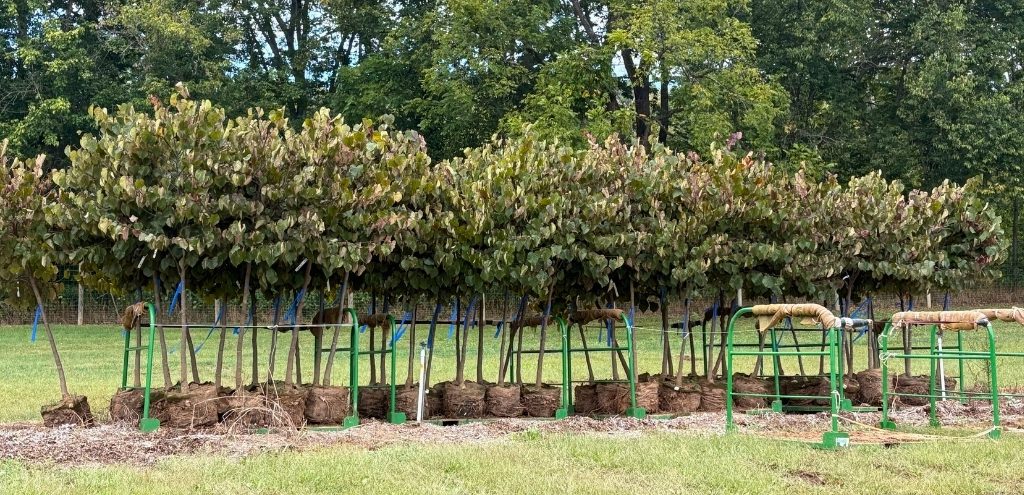
As September comes to an end, we’re taking a moment to reflect on a productive summer at the Casey Tree Farm in Berryville, VA. This summer, our team prioritized growth and care this season as we expanded our production field, focused on sustainability, and cultivated trees for the upcoming fall planting season.
Take a look below to see sustainability in action.
FIELD EXPANSION
We reached a major milestone with the planting of our eighth tree production field—a 25-acre area that will eventually host around 10,000 trees. At this time last year, we were preparing this field for planting by installing irrigation systems, placing deer fencing, and readying the soil for planting rows. We’ve since installed rootbags, and we’re nearly ready to plant this field with endless expanses of trees.
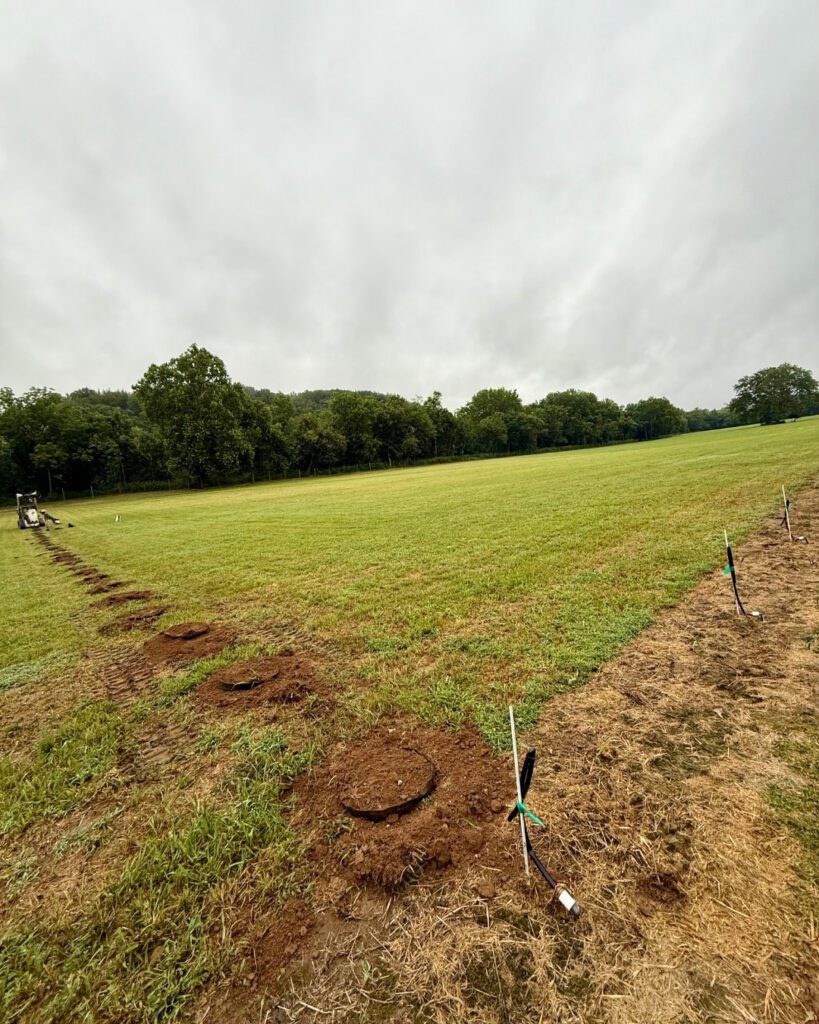
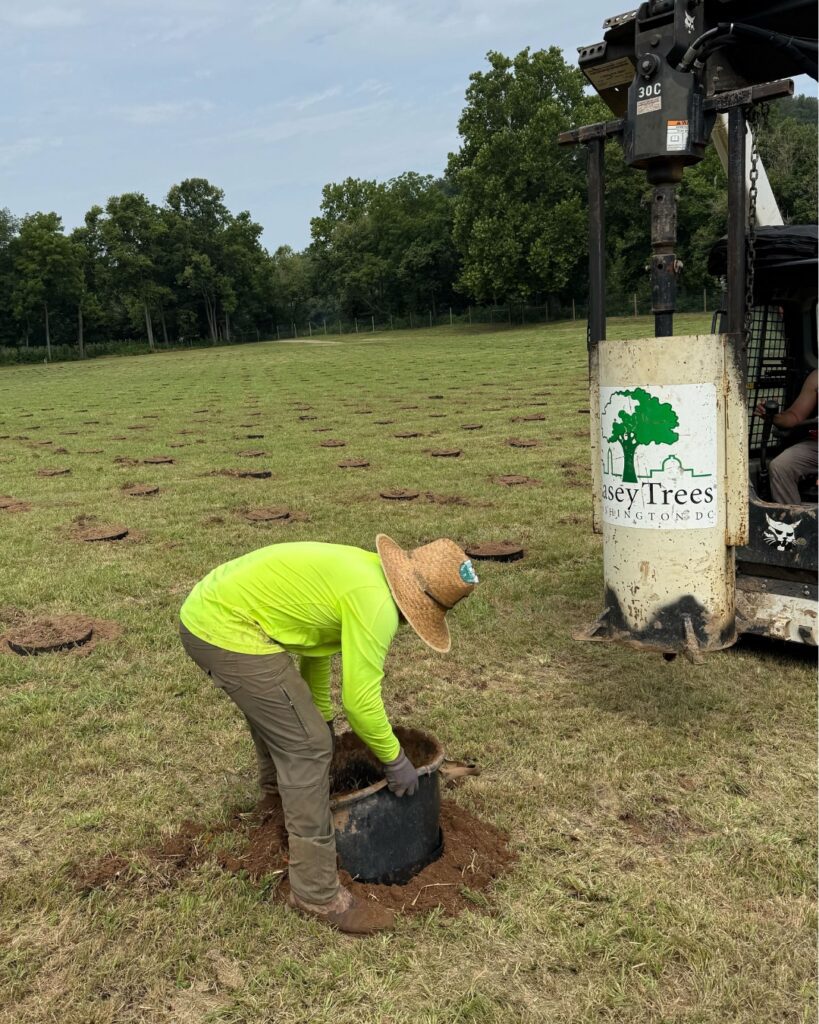
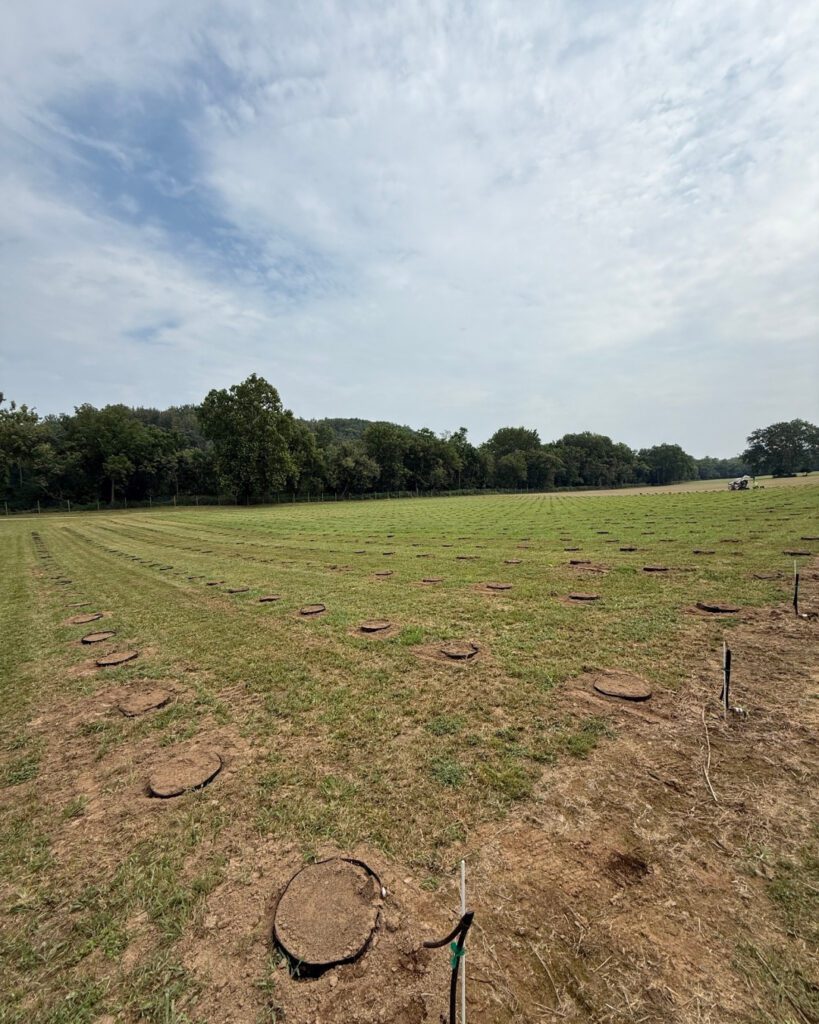
Additionally, we’ve started to grow smaller rootstock to support a wider variety of projects. While our larger rootbag trees meet many of the specifications and planting goals for most of our projects, smaller trees are sometimes needed. For instance, in restoration plans or in tight spaces where large trees cannot be easily transported or moved, having container-sized trees allows our team to stay flexible and fulfill our planting goals. These smaller rootbags even have handles and are light enough to be picked up easily—meaning anyone can plant a tree!
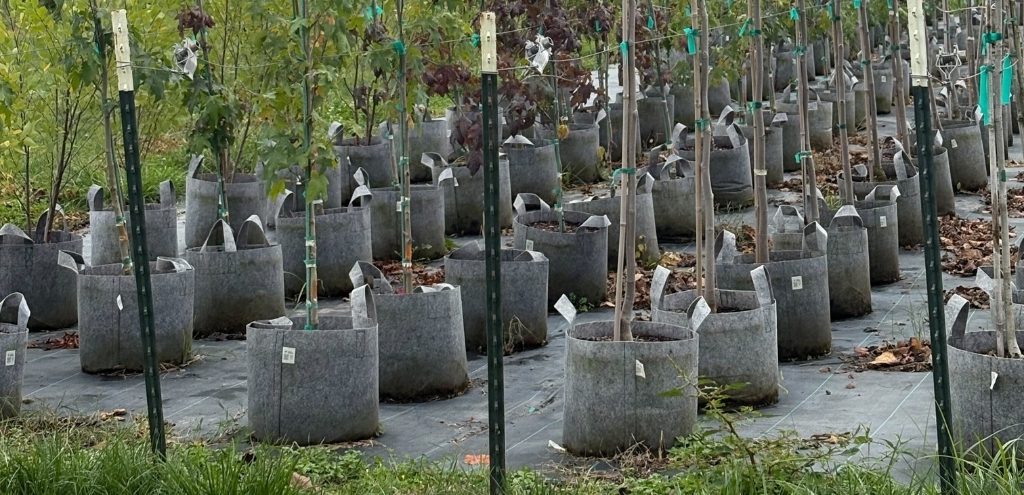
SUSTAINABLE PRACTICES
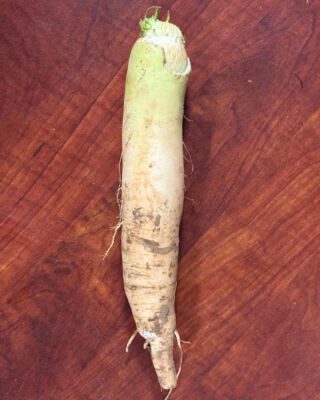
We also planted cover crops this year, which played a crucial role in naturally improving soil health. Daikon radish helped break up heavy clay soil compaction while drawing nutrients upwards, reducing the need for fertilizer and attracting beneficial insects. Buckwheat established quick and dense coverage to suppress weeds and supported pollinators with abundant flowers. Looking ahead to this fall and winter, we’ll plant winter rye and clover to protect soil, provide natural nitrogen fixation, and sustain beneficial insect habitats through the colder months.
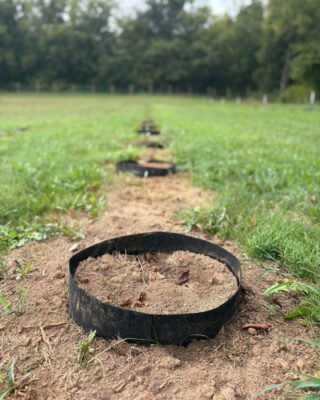
Another major milestone this summer was our switch to eco-friendly rootbags, made from 100% recycled water bottles and natural fibers. In addition to being more sustainable, these rootbags also promote a healthier, more resilient development of a tree’s root system. Rootbags discourage roots from circling and strangling the tree trunk and encourage quicker development of the tree’s rootball, equipping the tree to effectively take in water and nutrients while keeping 100% of the roots intact.
Not only was this change more cost-efficient, but it also supports our vision of integrating sustainability at every step of the tree-planting process.
TREES COMING SOON
Just this week, our farm team began digging and harvesting trees, preparing stock to be shipped to the District Department of Transportation’s Urban Forestry Division. Once in the hands of DDOT, these trees will be planted as street trees across DC, lining our roads and providing shade, habitats for wildlife, and a range of other community and ecological benefits for the District. Some of these trees will also take root in parks and homes throughout the District, Maryland, and Virginia, beautifying the nation’s capital one planting at a time.
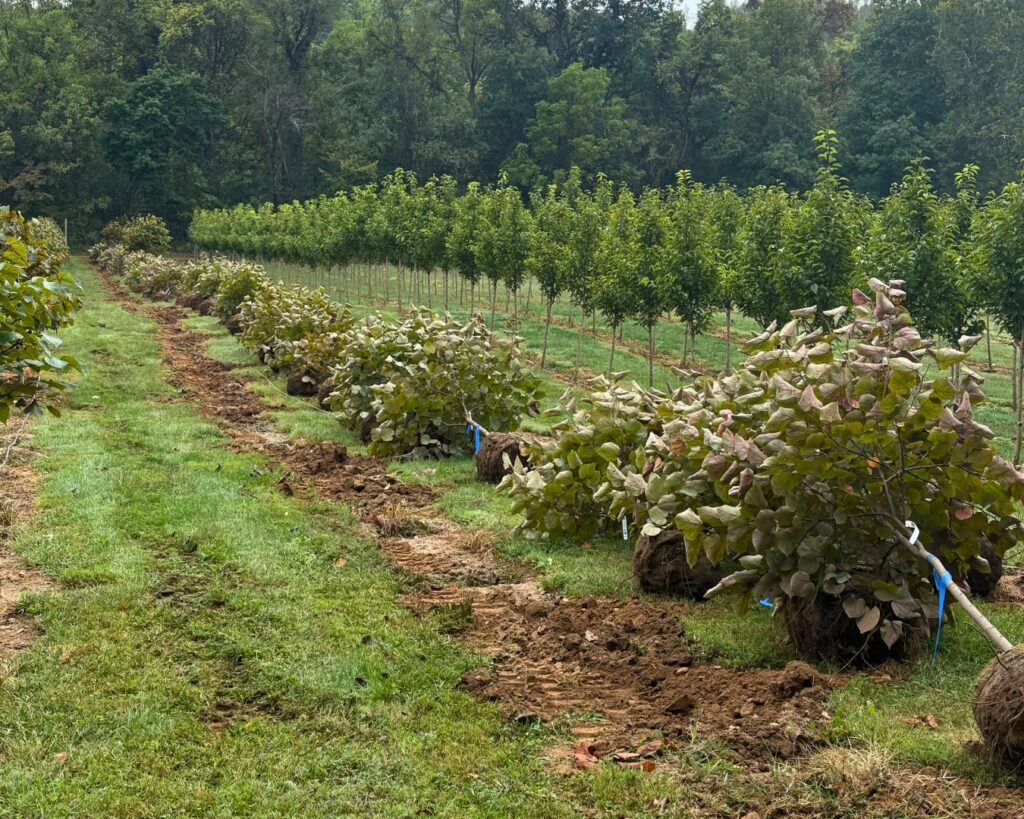
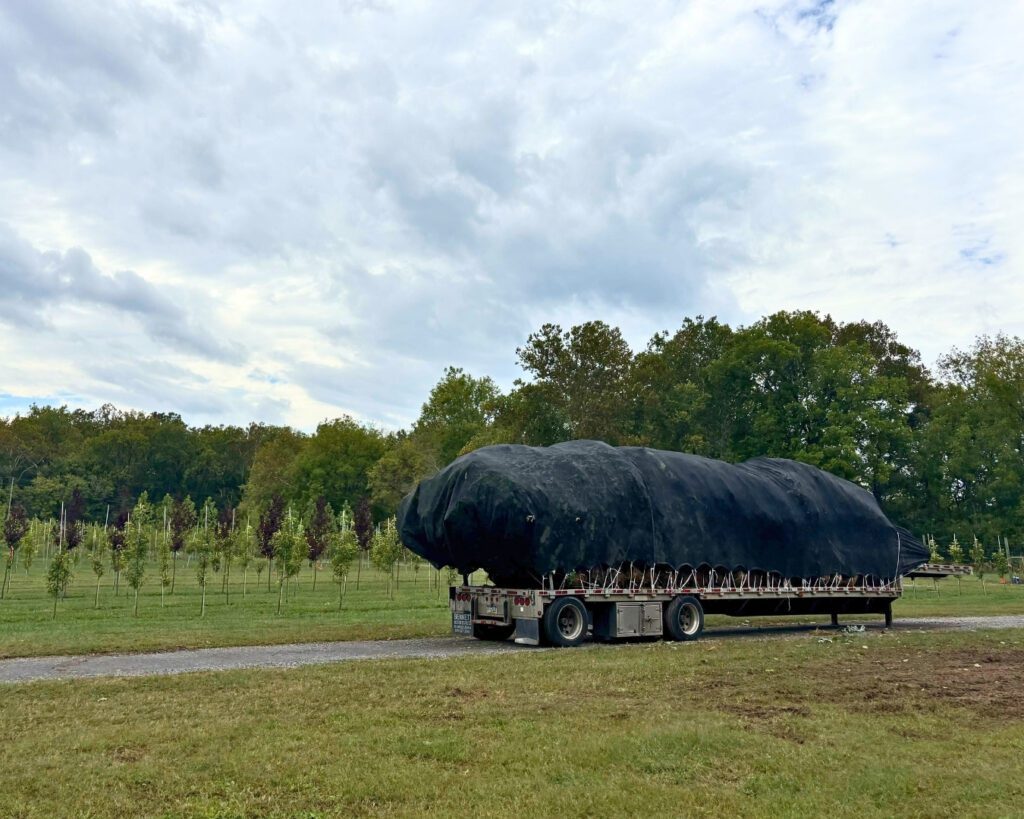
The expertise of our farm staff is key to uplifting Casey Trees’ broader mission of promoting healthy ecosystems for generations to come. Each tree they plant represents our commitment to a future filled with thriving, native trees that will help our communities and local ecosystems adapt to climate challenges ahead.
Stay tuned for more updates as we continue to bring the farm’s sustainable tree production to DC’s neighborhoods!
